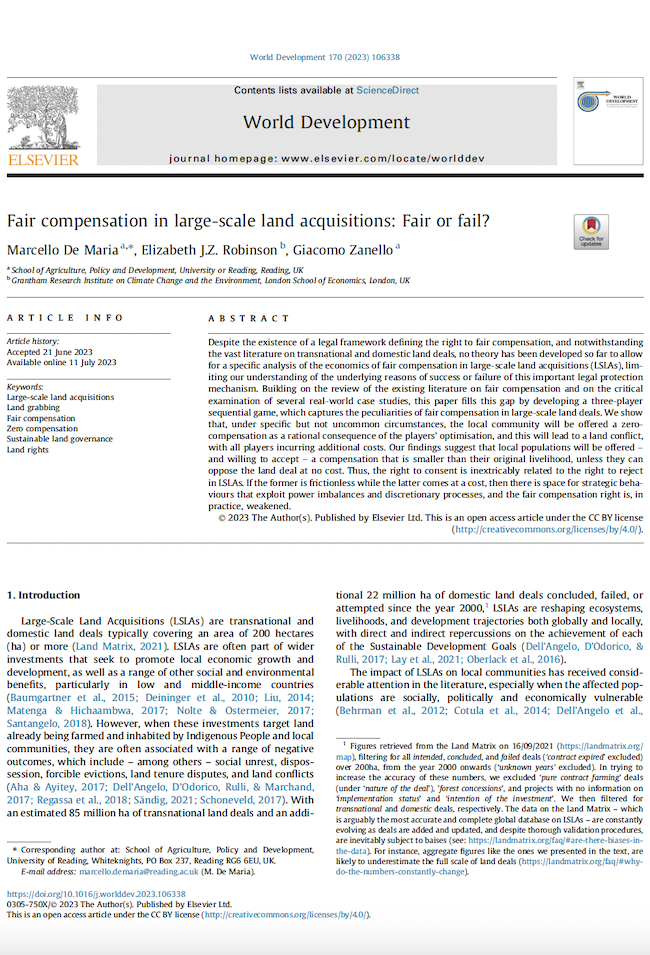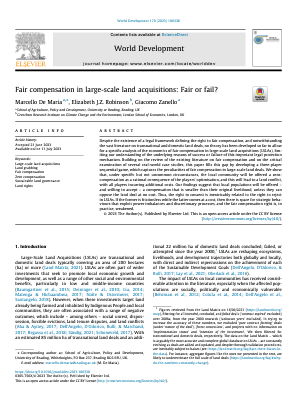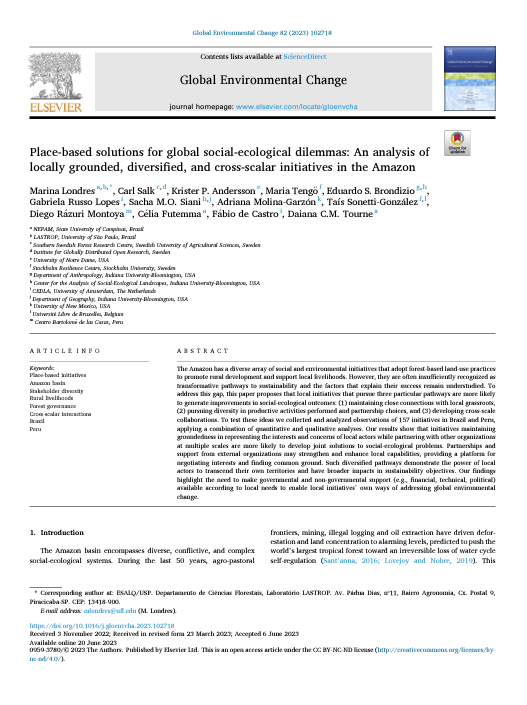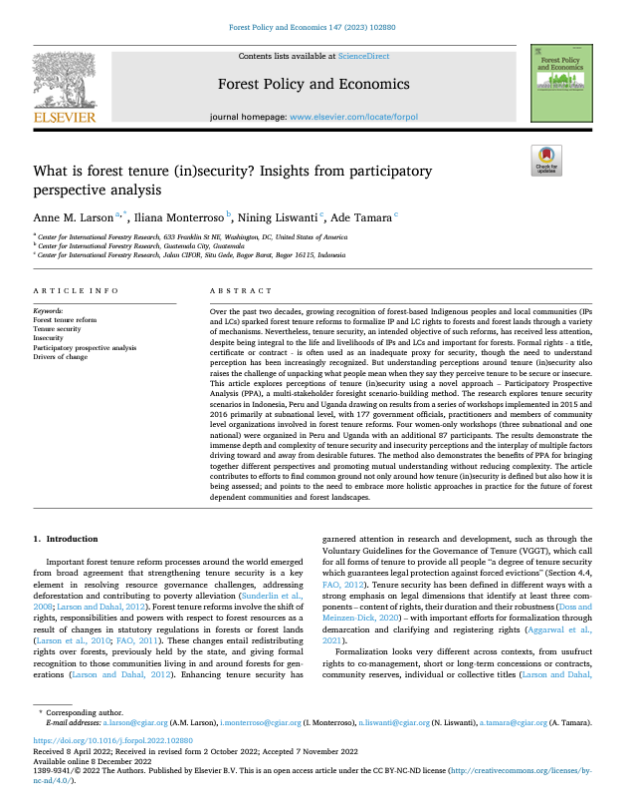Elsevier is a world-leading provider of information solutions that enhance the performance of science, health, and technology professionals.
All knowledge begins as uncommon—unrecognized, undervalued, and sometimes unaccepted. But with the right perspective, the uncommon can become the exceptional.
That’s why Elsevier is dedicated to making uncommon knowledge, common—through validation, integration, and connection. Between our carefully-curated information databases, smart social networks, intelligent search tools, and thousands of scholarly books and journals, we have a great responsibility and relentless passion for making information actionable.
Members:
Resources
Displaying 1 - 5 of 1605Fair compensation in large-scale land acquisitions: Fair or fail?
Despite the existence of a legal framework defining the right to fair compensation, and notwithstanding the vast literature on transnational and domestic land deals, no theory has been developed so far to allow for a specific analysis of the economics of fair compensation in large-scale land acquisitions (LSLAs), limiting our understanding of the underlying reasons of success or failure of this important legal protection mechanism.
Fair compensation in large-scale land acquisitions: Fair or fail?
Despite the existence of a legal framework defining the right to fair compensation, and notwithstanding the vast literature on transnational and domestic land deals, no theory has been developed so far to allow for a specific analysis of the economics of fair compensation in large-scale land acquisitions (LSLAs), limiting our understanding of the underlying reasons of success or failure of this important legal protection mechanism.
Place-based solutions for global social-ecological dilemmas:
The Amazon has a diverse array of social and environmental initiatives that adopt forest-based land-use practices to promote rural development and support local livelihoods. However, they are often insufficiently recognized as transformative pathways to sustainability and the factors that explain their success remain understudied.
What is forest tenure (in)security? Insights from participatory perspective analysis
Over the past two decades, growing recognition of forest-based Indigenous peoples and local communities (IPs and LCs) sparked forest tenure reforms to formalize IP and LC rights to forests and forest lands through a variety of mechanisms. Nevertheless, tenure security, an intended objective of such reforms, has received less attention, despite being integral to the life and livelihoods of IPs and LCs and important for forests.
Land expropriation – The hidden danger of climate change response in Mozambique
This paper sets out why land expropriation is a hidden danger of the response to climate change; a danger that is not adequately captured in legislation and that risks disproportionately affecting the poor. Measures to mitigate the risks and impacts of climate change are often dependent on states’ access to land.






